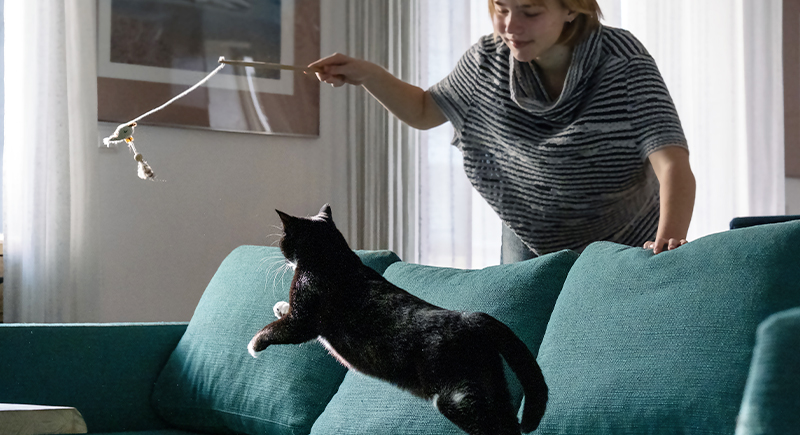Just How Smart Is Your Cat? This Viral Intelligence Test Will Tell You
Cats have always carried the label of being smart, though no one seems to agree on what that really means. Some people are convinced their pets pick up whole conversations, while others watch them stare at simple puzzles as if they’re from another planet. What’s certain is that curiosity about feline “IQ” never runs out of steam. Each wave of these makeshift “tests” ends up online, where the real entertainment is watching cats come up with responses no one saw coming.
Social Media’s Favorite Cat IQ Test
The setup for this test was one simple task: press the duck’s foot, and a few treats drop out. Millions of viewers expected the cat to push the lever after its owner had mirrored the action with the cat several times. Instead, the cat skipped the rules, popped the lid off the dispenser, and went straight for the stash.
Not every viral “IQ test” involves a gadget. On TikTok, one trend had owners hold their cats close to a wall to see how they reacted. Cats that stretched out a paw first were labeled clever; those that leaned in nose-first didn’t get the same praise. Viewers quickly noted it probably said more about trust than intelligence, but the clips took off anyway because each cat responded so differently. Some cautious, some inventive, and some completely baffled.
The dispenser trick and the wall test point to something larger: cats don’t fit into tidy boxes when it comes to intelligence. They are mostly unpredictable, and that unpredictability is what keeps people watching and fuels endless debates about what “smart” really looks like in a species that rarely performs on command.
What Science Says About Cat Smarts
Viral clips are fun, but science provides a more grounded look at feline cognition. Researchers agree that cats show object permanence, meaning they know a toy still exists even when hidden. They have both short-term and long-term memory strong enough to solve delayed challenges, and they respond to human voices, gestures, and moods. Some studies compare their cognitive abilities to a toddler’s, though cats lean more toward independent problem-solving than social cooperation.
Breeds like Abyssinian and Siamese often get labeled as “smarter,” but experts caution against oversimplifying. Intelligence in cats is situational. One may shine at opening cabinets while another is better at sensing emotions. If a cat figures out how to open a treat bag or sits with you when you’re upset, that’s intelligence tailored to survival and bonding.
Testing Your Cat At Home

Image via iStockphoto/Umi Di
You don’t need fancy gear to try little intelligence challenges with your cat. A toy hidden under a cup, a treat tucked into an egg carton, or a simple pointing gesture across the room can all reveal how they process information. Even teaching a basic command with food rewards shows how quickly they make the link between action and outcome.
Results won’t always be immediate. A cat might crack a puzzle right away or decide it’s not worth the effort. The important part is giving them chances to explore. Over time, enrichment—things like food puzzles, climbing spots, and interactive play—helps sharpen their problem-solving skills and keeps them adaptable. A curious, engaged cat tends to learn more readily and handle new situations with ease.